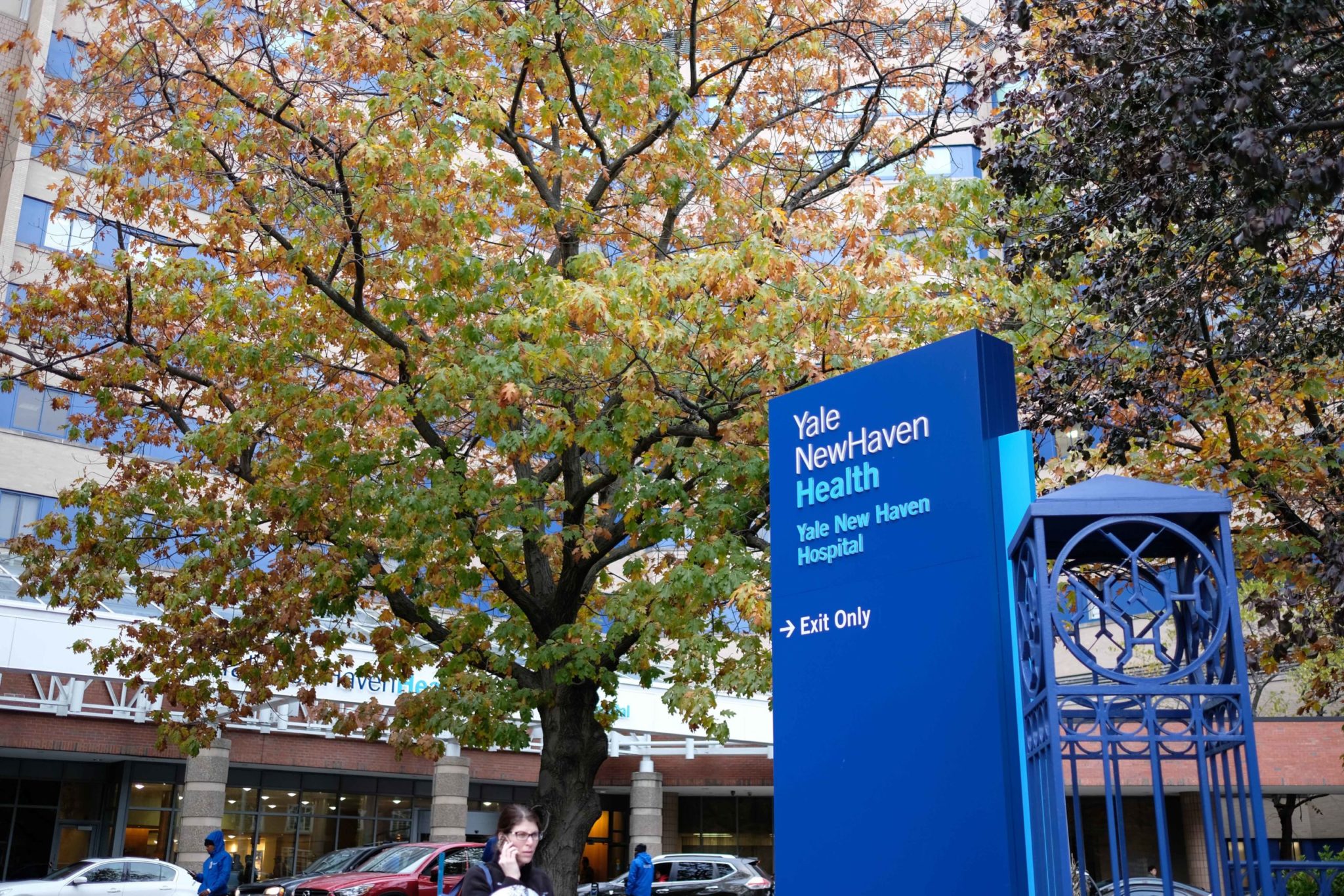
Eric Wang
The Clinical Virology Lab at the Yale School of Medicine made waves in the Yale New Haven Health system when it successfully replicated the COVID-19 diagnostic test two weeks ago — but since then, shortages of materials have hampered its testing capacity.
Researchers under professor of laboratory medicine Marie-Louise Landry began screening COVID-19 samples on March 13, after replicating the test administered by the Centers for Disease Control and Prevention. This test, paired with the new drive-through testing sites, initially bolstered the Yale New Haven Health system’s testing capacity. However, shortages of required chemical reagents and materials have made it difficult for the lab to keep up with the demand.
On March 17, the YNHH system opened multiple outdoor, drive-through specimen collection sites, where in-patients, out-patients and healthcare workers could get their samples collected. These sites are present at all four of the major hospitals in the YNHH system: Greenwich Hospital, Bridgeport Hospital, Yale New Haven Hospital and Lawrence + Memorial Hospital.
“We started with in-patients at our hospital, and then we increased it to accept in-patients from the other hospitals in our system, and then we increased it to accept the healthcare workers,” Landry said. “We then opened the tents where they could get samples obtained because until then, a patient couldn’t even get a swab collected.”
When Landry’s lab initially scaled up its testing operation, its ideal testing capacity was 200 samples per day. However, some experts involved thought this was optimistic. Thomas Balcezak, an associate clinical professor and doctor at the Yale School of Medicine, told the News earlier this month that YNHH would probably only be able to screen about 50 samples per day due to staffing and workflow limitations.
In the first few days of testing, Landry’s laboratory could screen about 22 or 23 samples per day, she said. As they trained more people and improved the workflow, they were able to screen closer to 250 or 300 daily. As of this week, however, the YNHH system is facing a shortage in testing materials, as is the rest of the country.
“[Testing] is still ongoing but we are carefully following the supply of both the swabs used to collect specimens and the lab reagents necessary for the test as there are issues with the supplies of both in the U.S.,” said Richard Martinello, medical director of infection prevention at Yale New Haven Hospital.
The Yale School of Medicine released a statement about the shortage of materials on March 25 and assured the public that “leadership of the Virology Lab is working diligently to obtain required materials as well more immediate availability of rapid test kits.”
While outpatient specimens were already being sent to the private company Quest Diagnostics for testing due to volume concerns, Landry said the delay in material delivery meant the lab had to begin diverting healthcare worker tests to Quest as well. But sending healthcare worker samples to Quest poses a problem, since this takes five to seven days or longer, while Landry’s laboratory tries to have results available within six hours.
“We had to halt a lot of this testing. We could no longer do the healthcare workers,” Landry said. “We had to divert them to Quest, and we’re just trying to focus on the in-patients.”
Now that Landry’s lab is running out of supplies and cannot perform tests on healthcare workers, YNHH is screening closer to 100 or 120 samples daily, according to Martinello.
One of the key components in running the COVID-19 test is called an extraction reagent, which extracts the virus’ genetic material out of the sample and is ordered from France. According to Landry, her lab had ordered more of it to arrive on Monday, March 23, but it did not arrive until March 26.
“People felt it was like Christmas,” Landry said about the materials’ Thursday arrival. “People were dancing in the hallways.”
But the laboratory did not receive the full quantity of extraction reagents that they had ordered. They perform about 250–300 reactions per day, and they were only sent enough to carry out 800. Each test requires three of these precise reactions. According to Landry, the supply would only last them through the weekend and would be just enough to clear out the backlog that had accumulated during the delay.
Extraction reagents are not the only materials in short supply. Landry said it has been difficult to have enough pipettes or even plasticware in the laboratory. Another major concern is that testing sites across the country are running out of the testing swabs used to collect the samples.
In light of these shortages, the Clinical Virology Lab hopes to obtain new instruments in order to develop alternative tests for COVID-19. Currently, commercial and research laboratories alike can only perform the CDC’s version of the test, which is an extremely labor-intensive process. Landry hopes that if her lab can develop a more automated and efficient test, then they could increase overall testing capacity in the YNHH system and elsewhere.
“We’re just beginning,” said Landry. “We’re just on the up-slope right now. It’s going to get a lot worse, I’m afraid.”
According to official guidelines sent from the YNHH health system to its healthcare providers in the area, doctors can order tests online for any patient they believe should be tested. Once the order is placed, YNHH contacts the patient with a precise date, time and location for their tests.
Yale has set up one specimen collection site on Sargent Drive for the public and another on Orchard Street for healthcare workers, according to Landry. All sites are outdoors, as it is harder for the virus to spread when patients stay in their cars. It also allows for less waste and need for materials, as the people collecting specimens can simply change their gloves in between patients instead of their entire set of clothing.
As of Sunday evening, there have been 1,993 laboratory-confirmed cases of COVID-19 in Connecticut.
Charlotte Zimmer | charlotte.zimmer@yale.edu







